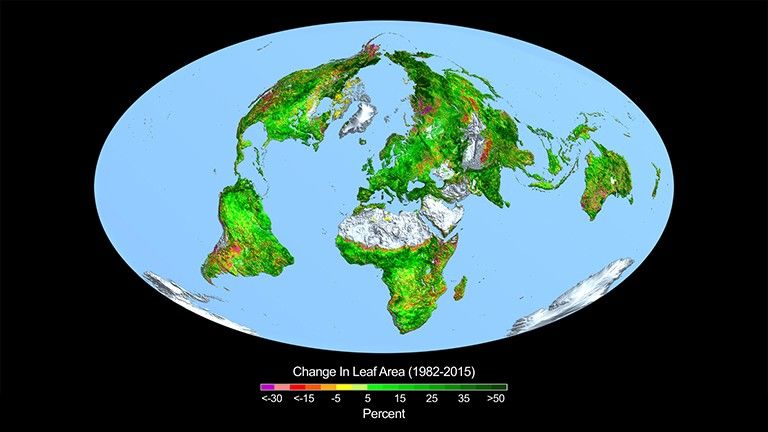beorhthelm
A. Virgo, Football Genius
- Jul 21, 2003
- 36,548
let's check some science:...
Again not true - your science is a bit off here if you don’t mind me saying so - forested regions and ‘green’ habitat is actually decreasing - When trees are destroyed and vegetation disturbed, it actually releases stored carbon dioxide into the atmosphere along with other greenhouse gases - that is the issue - not the possibility of Triffids taking over and polluting the atmosphere with O2. And an increase in C02 doesn’t ‘cause’ more ‘green leaf coverage’ - if only it did.

CO2 is making Earth greener—for now - NASA Science
A quarter to half of Earth’s vegetated lands has shown significant greening over the last 35 years largely due to rising levels of atmospheric carbon dioxide.
habitat loss is another subject. and that's the main problem with global warming, it's abused as a backdrop to all sorts of other environmental issues and causes, that distorts claims, questions motivations.
some years ago it looked like a pragmatic approach was taking over with "net zero". this accepted you cant stop all emissions, there are other things that can be done, if you target a net zero emission by country, by region, you get a positive overall outcome without some of the horrendous economic and social consequences of actually attempting zero emissions. now we are well on track for net zero, that's not enough for some, because of those other causes.
Last edited:
